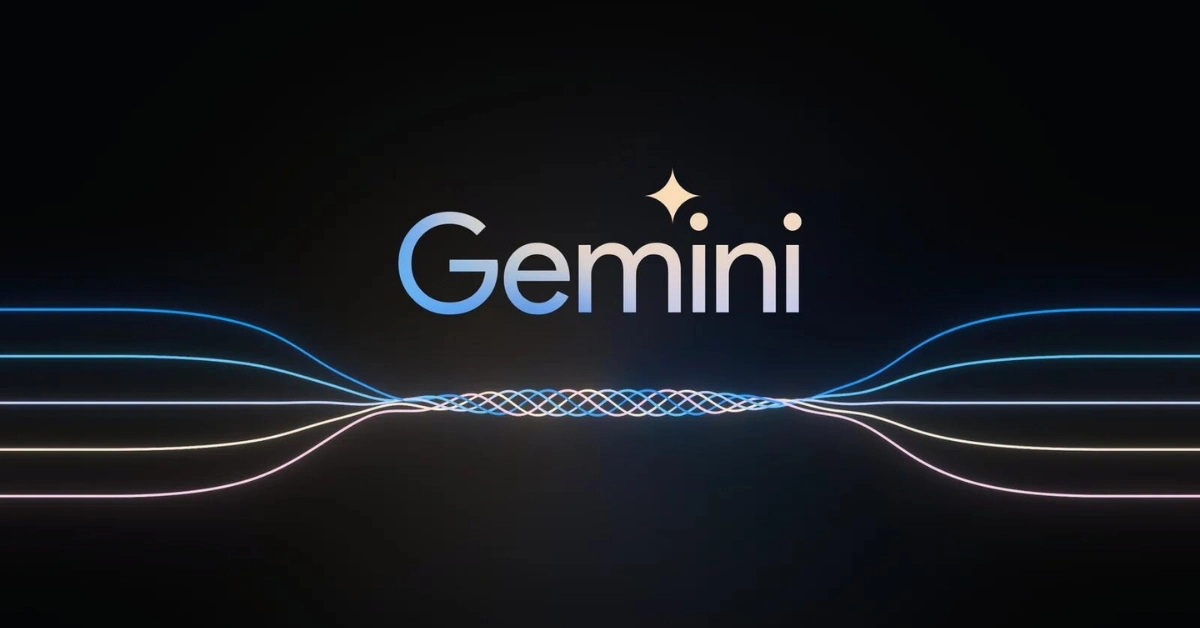Google has officially introduced its revolutionary Artificial Intelligence (AI) model, ‘Gemini,’ on 6 December 2023. Gemini replicates human-like behavior and surpasses the abilities of current AI models.
Tech Giant’s new AI model demonstrates superior performance in the areas of understanding, summarizing, reasoning, coding, and planning. Gemini comes in three variants – Nano, Pro, and Ultra. Gemini Pro is currently available for use, while the most advanced Ultra variant is yet to be released next year.
Gemini Capabilities
Developed by Google’s Deep Mind division, Gemini is a Large Language Model (LLM) designed to compete with other reputable giants in the field of Generative AI, such as OpenAI’s GPT-4.
What sets the model apart from the competition is its multimodal abilities, integrating several data types like text, images, code, audio, and even video. With this approach, the users get more natural and interactive conservations.
Google’s Latest AI Infrastructure
As a part of the ‘Next Generation Multimodal Models,’ Gemini will use Pathways, Google’s new AI infrastructure. Also, the usage of Google’s Pathways infrastructure in the new AI model suggests that it could be the largest LLM to date.
Variety of Models Available
Gemini offers models in different sizes and capabilities to handle various tasks. Google employs various techniques like memory, fact-checking via Google Search, and improved reinforcement learning to enhance accuracy and reduce false information.
Also Read: Orhan Awatramani ‘Orry’ Biography, Lifestyle and Rise to Fame
Integrations and Availablity
At Present, Google has integrated Gemini Pro within its Bard chatbot, a direct competitor of OpenAI’s ChatGPT. Although it currently supports only text-based interactions, Google is planning to extend its support to other modalities soon. The Gemini-powered Bard is now available across 170 countries, with support currently limited to the English language only.
Impact on AI Market
With its introduction, Gemini is expected to have a significant impact on the AI market. Google describes Gemini as one of the initial multi-modal LLM developed from scratch, promising more natural and human-like interactions. The AI industry is in a buzz now with the latest possibilities with Gemini powering applications and devices like Bard and Pixel 8 Pro.
Rivalry with OpenAI
With Gemini’s introduction, the competition level escalates in the AI space. Major players like OpenAI and Microsoft marked significant AI achievements this past year. Now, Google’s powerful comeback with their new LLM model raises concern for these rival companies, notably OpenAI, which challenges them to improve their technology pacing up with Google’s Gemini.
Gemini Launch Roadmap
In December 2023, Google took a leap forward in Artificial Intelligence by introducing one of the most advanced LLM Gemini. Google introduced this model via an unexpected announcement and a demo video. The demo video shows Gemini’s multimodal capabilities and gives people a sneak peek into the future of AI.
Subsequently, after its launch, Google also announced plans for a more advanced version of the ‘Bard’ chatbot, which is planned to be released in early 2024. Currently, the Bard only supports English, but one of the Google executives assured reports that this technology could further efficiently work with other languages.
Fear in the Industry
On the other hand, Google’s new AI product announcement sparked discussions across the industry. While its impressive problem solving capabilities foster for scientific breakthroughs among AI enthusiasts, concerns still remain about the potential risks associated with such an advanced AI.
These include problems such as jobs replacement by AI, spreading misinformation and even the risk of nuclear weapon deployment. In response to these, Google’s CEO Sundar Pichai addressed in a blog post that plans are underway to tackle such concerns.

